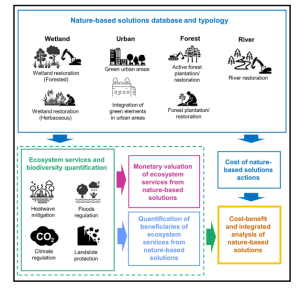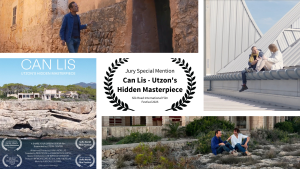Applying the IUCN Global Standard for Nature-based Solutions

The International Union for Conservation of Nature (IUCN) has developed the Global Standard for Nature-based Solutions™ (NbS), a comprehensive framework designed to guide the planning, implementation, and evaluation of NbS worldwide. NbS are defined as actions to protect, sustainably manage, and restore ecosystems in ways that address societal challenges while providing benefits for both biodiversity and human well-being. This publication presents 21 case studies from across the globe, showcasing the application of the Global Standard in diverse ecological, cultural, and socio-economic contexts.
The case studies range from coastal restoration projects in Tunisia, Indonesia, and Australia, to freshwater initiatives in Austria and Portugal, to terrestrial and agricultural solutions in Ecuador, Colombia, and India, and urban and business-related applications in the United Kingdom, Greece, and Latin America. Collectively, they address pressing challenges such as climate change adaptation and mitigation, biodiversity loss, disaster risk reduction, food and water security, and sustainable development.
The assessments revealed that biodiversity gains and addressing societal challenges were the strongest outcomes, while economic viability and the balancing of trade-offs were the weakest areas. A key strength was the strong involvement of local communities and Indigenous Peoples, underlining the importance of inclusive governance. The lessons learned stress the need for long-term financing, clear governance structures, adaptive management, and strong stakeholder engagement. Together, these case studies demonstrate how NbS can offer scalable, sustainable, and equitable responses to global environmental and social crises.




